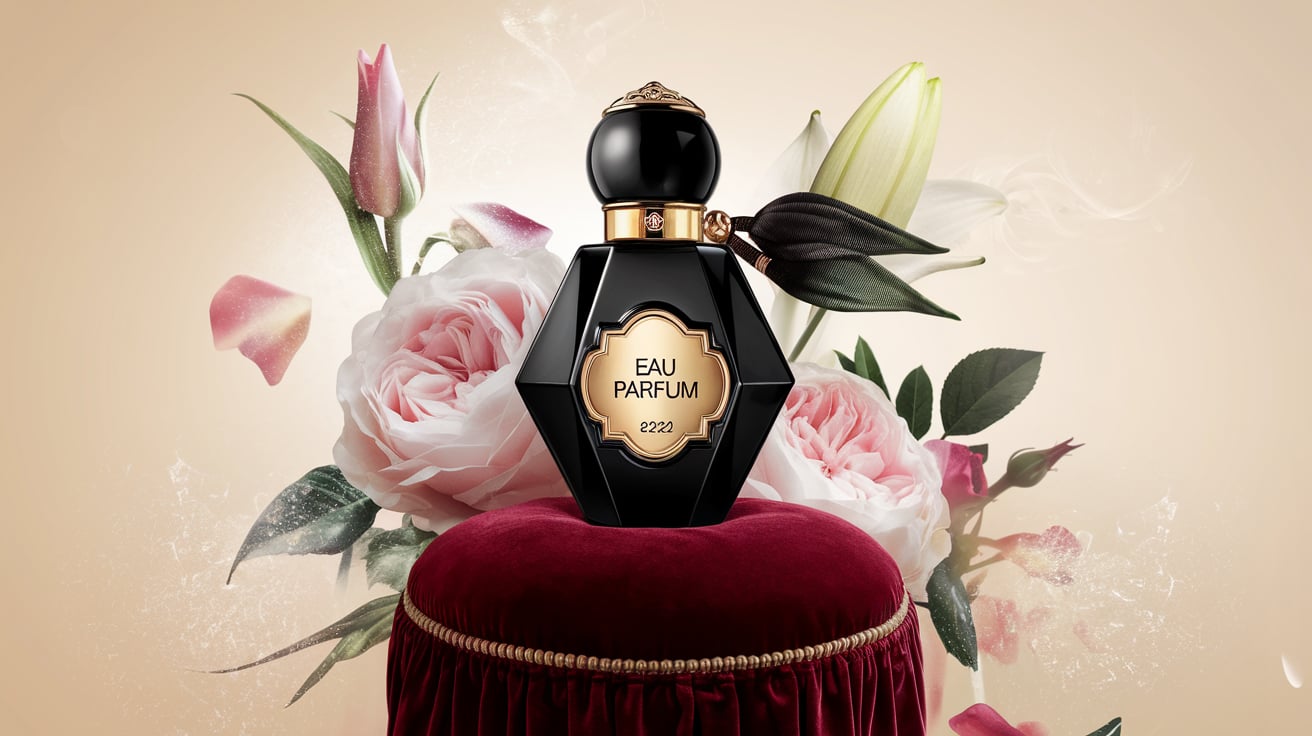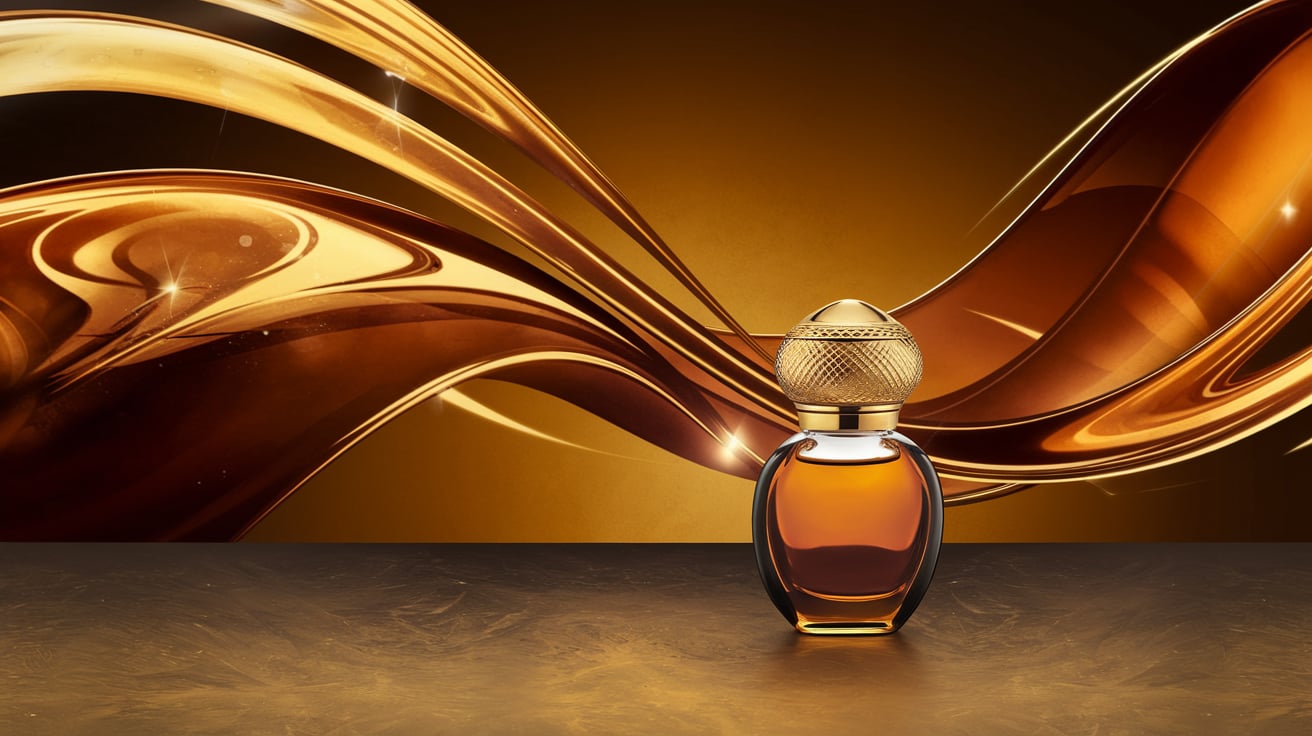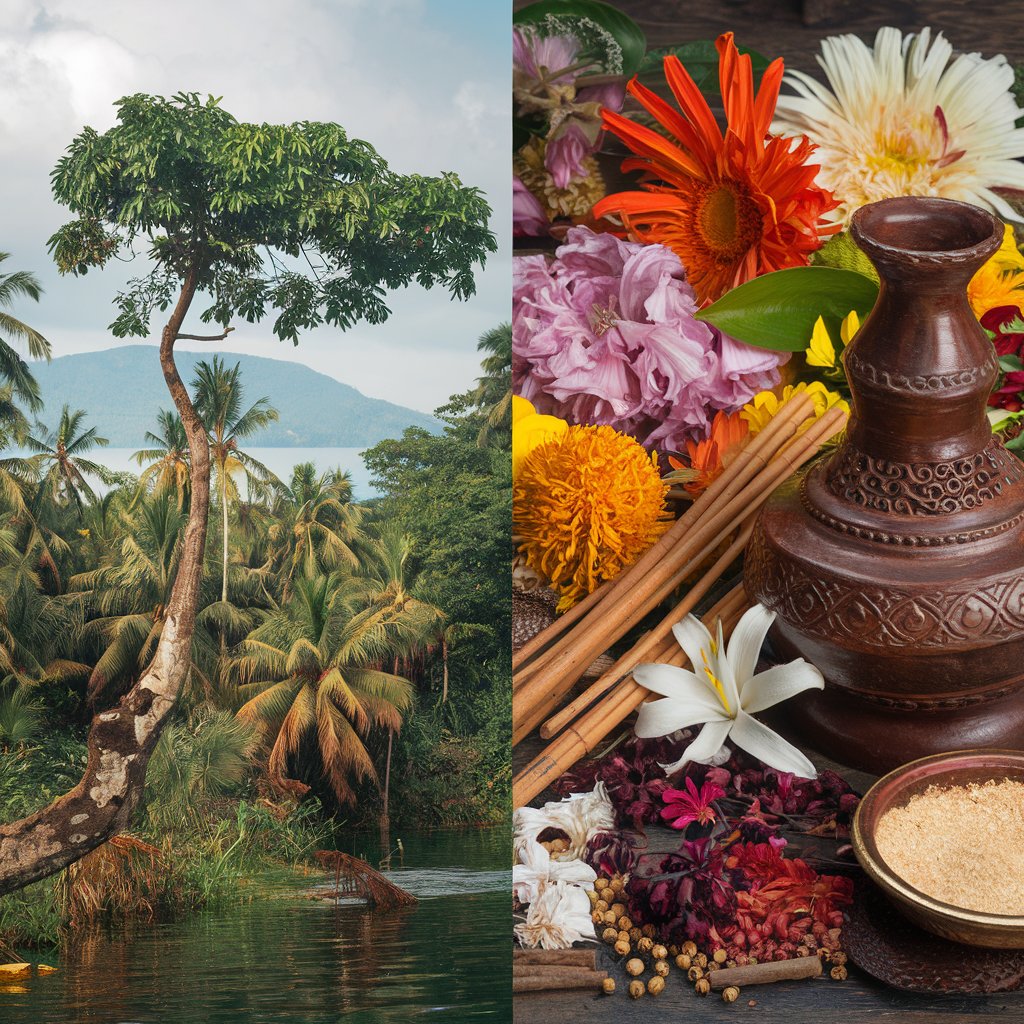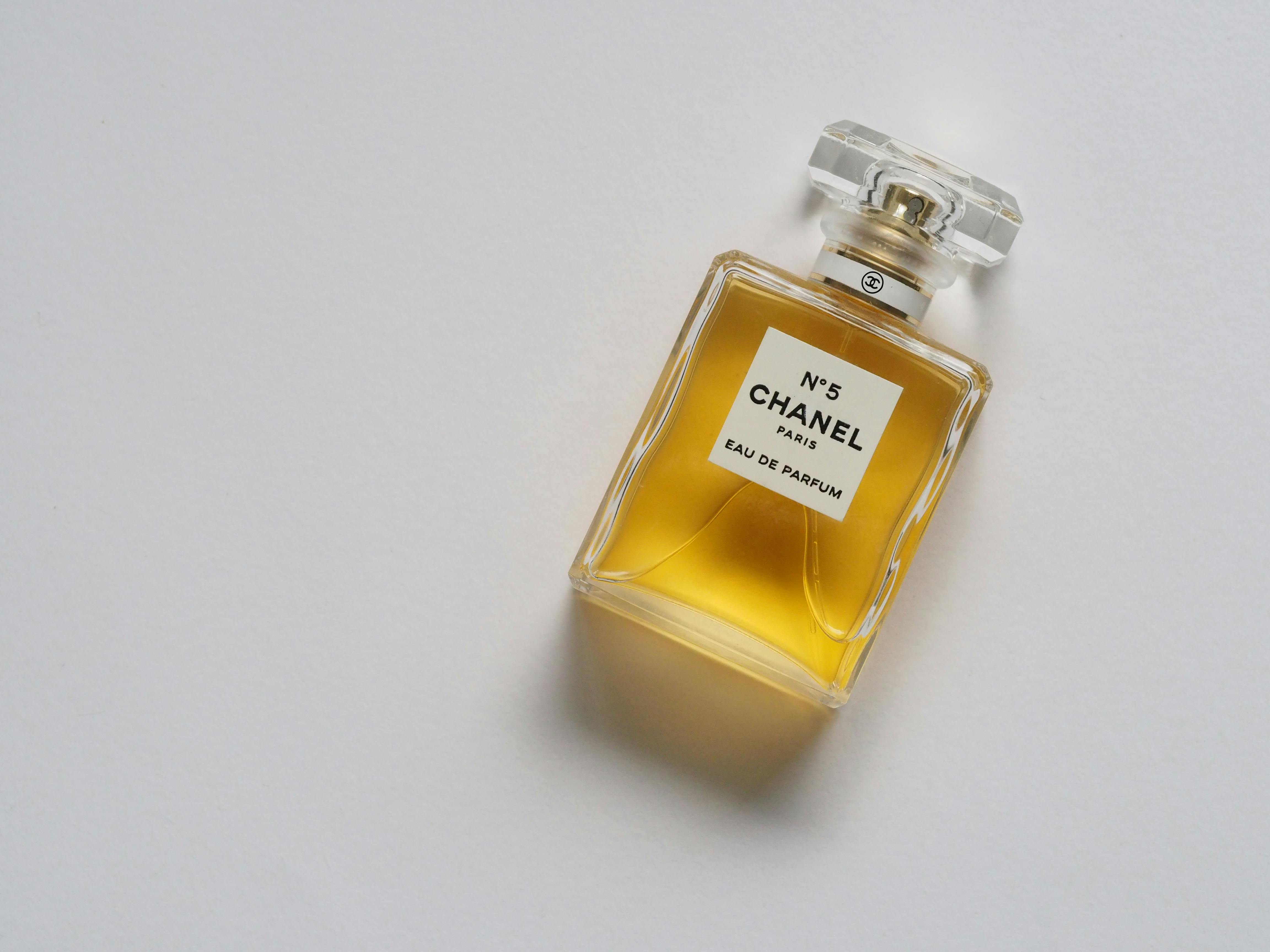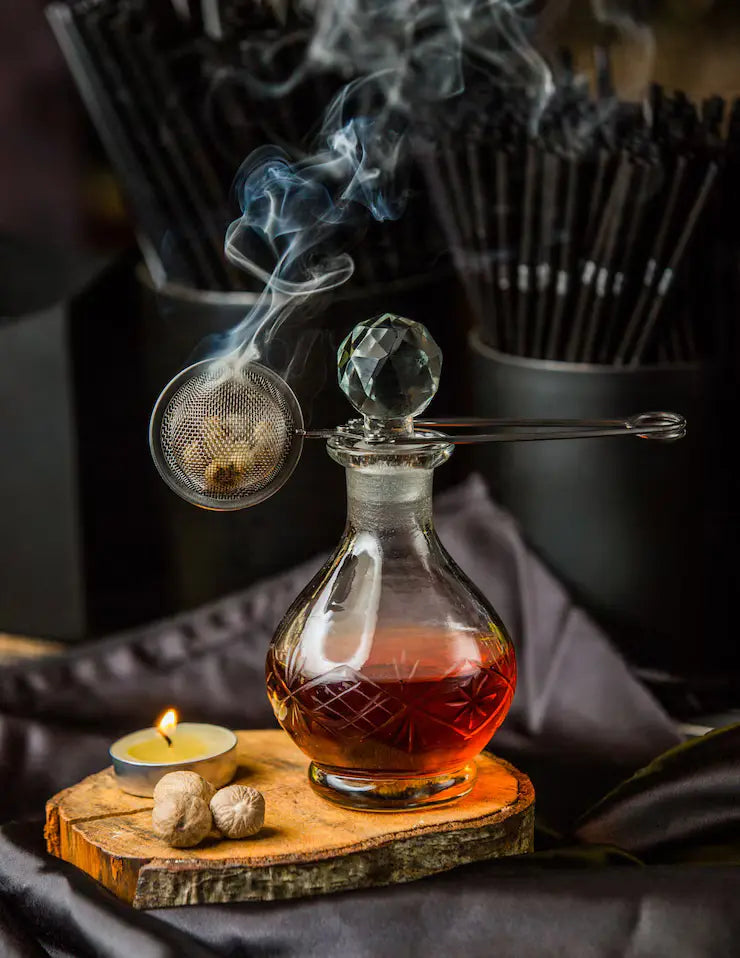
Bakhoor Bliss: Discover Sensory Wonder with Wani Perfume's Exclusive Fragrance Collection
The background of bakhoor traces back to ancient times, particularly in the Middle East and South Asia, where it has been an integral part of cultural and religious practices for centuries. Bakhoor is derived from the Arabic word "bukhoor," which means incense.
Historically, bakhoor was primarily used in palaces, temples, and royal courts as a way to purify the air and create a pleasant ambiance. It was also employed during religious ceremonies and rituals as a symbol of reverence and spirituality. The fragrant smoke produced by burning bakhoor was believed to carry prayers and offerings to the heavens, thus enhancing the connection between the earthly and divine realms.
The ingredients used to make bakhoor have evolved over time, reflecting the cultural and regional diversity of its origins. Initially, bakhoor was crafted from aromatic woods, herbs, and spices found in the local environment. Oud wood, derived from the agarwood tree, has been a prized ingredient in many bakhoor blends due to its rich and complex aroma.
Different cultures developed their own variations of bakhoor, incorporating local ingredients and techniques to create unique fragrances and formulations. Today, bakhoor continues to hold deep cultural significance in many societies, symbolizing hospitality, prosperity, and spiritual devotion. It is used in various social and religious ceremonies, such as weddings and births.
Additionally, bakhoor has found a place in modern lifestyles, Wani Perfumes are having the exclusive fragrance collection, with people using it to fragrance their homes, offices, and personal spaces, as well as for aromatherapy and relaxation purposes.
Traditional methods of burning bakhoor on charcoal discs or specialized burners persist, modern innovations such as electric incense burners and bakhoor-infused products cater to changing consumer preferences.
It offers a range of benefits, both practical and cultural. Here's an overview:
Benefits:
- Fragrance: It emits a pleasant and long-lasting aroma when burned, often characterized by rich and exotic scents such as oud, amber, musk, and floral notes.
- Air purification: It is believed to have air-purifying properties, traditionally used to cleanse the air of unpleasant Odors and create a welcoming atmosphere.
- Mood enhancement: The aroma of it is often associated with relaxation and spiritual upliftment, making it a popular choice for aromatherapy and meditation practices.
- Cultural significance: It holds deep cultural and traditional significance in many societies, often used during special occasions, religious rituals, and social gatherings.
Ways to Produce:
- Ingredients: It is typically made from a blend of natural ingredients such as oud wood chips, resin, essential oils, spices, and floral extracts.
- Preparation: The ingredients are mixed and ground into a paste-like consistency, which is then shaped into small balls, sticks, or chips. These are often left to dry and mature to enhance the fragrance.
- Aging: Some makers prefer to age the mixture for a period to allow the Flavors and aromas to meld and intensify.
Ways to Use:
- Burning: Bakhoor is traditionally burned on a hot charcoal disk or in a specialized incense burner called a mabkhara. A small piece of it is placed on the charcoal, releasing its fragrance as it smoulders.
- Sprinkling: In some rituals or traditions, powdered it may be sprinkled on hot coals or directly onto surfaces to release its aroma.
Ways to Store:
- Airtight containers: Store in airtight containers away from direct sunlight and moisture to preserve its fragrance and potency.
- Cool, dark place: Keep it in a cool, dark place to prevent exposure to heat, which can degrade its quality over time.
- Separate storage: Store different types of bakhoor separately to prevent mingling of aromas.
Market Scope:
- Cultural markets: It is widely popular in regions with strong cultural ties to incense traditions, such as the Middle East, South Asia, and parts of Africa.
- Luxury market: High-quality bakhoor made from rare and exotic ingredients caters to a luxury market segment, attracting connoisseurs and collectors. Wani Perfume’s has its exclusive collections.
- Global demand: With increasing interest in aromatherapy, wellness practices, and exotic fragrances worldwide, bakhoor has gained popularity beyond its traditional markets.
- Consumer preferences: Consumer preferences for specific fragrances such as at Wani Perfumes one can get a variety of exclusive fragrance collections, packaging, and presentation styles influence the market dynamics and product offerings in its industry.
Value:
- Cultural value: Bakhoor holds significant cultural and religious value in many societies, often used in ceremonies, celebrations, and religious rituals.
- Economic value: The bakhoor industry generates substantial revenue through the production, sale, and export of various types of incense products.
- Artisanal craft: Craftsmen and artisans skilled in the art of bakhoor making contribute to its value as a traditional craft and cultural heritage.
Overall, bakhoor offers a blend of sensory delight, cultural significance, and practical benefits, making it a cherished tradition in many parts of the world.








